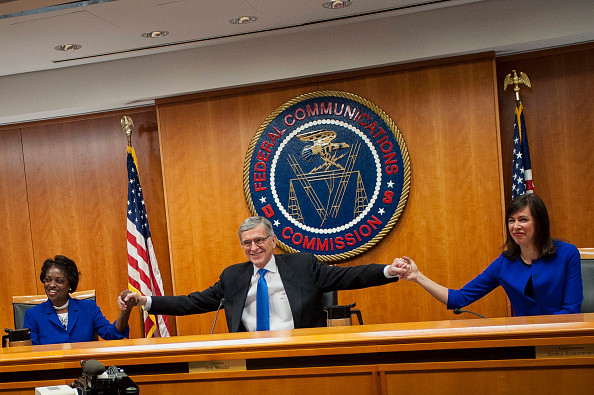FCC passes net neutrality rules
FCC turns Internet into a public utility

The Federal Communications Commission (FCC) has voted to change how the Internet is regulated on Thursday (26 February), in a 3-to-2 vote in favour of net neutrality.
Endorsing "net neutrality", FCC commissioners have prohibited Internet service providers from forming paid fast lanes, site and app blocking, and speed throttling.
The action that we take today is an irrefutable reflection of the principle that no one, whether government or corporate, should control free and open access to the internet.
"The Internet is simply too important to allow broadband providers to be making the rules. This is no more a plan to regulate the Internet than the First Amendment is to regulate free speech," said FCC chairman Tom Wheeler.
"The action that we take today is an irrefutable reflection of the principle that no one, whether government or corporate, should control free and open access to the internet."
Under the new regulation, internet providers' offerings will be classified as telecommunications services under Title II of the Communications Act, reported The Verge.
Columbia Law School professor Tim Wu, who coined the phrase 'net neutrality', said: "It is a historic day in the history of the internet. Net neutrality, long in existence as a principle, has been codified in a way that will likely survive court scrutiny. More generally, this marks the beginning of an entirely new era of how communications are regulated in the United States."
The net neutrality laws will also be applied in full to mobile Internet services, and like electricity and water, Internet too will now be regulated like a public utility.
"We cannot have a two-tiered internet with fast lanes that speed the traffic of the privileged and leave the rest of us lagging behind," said commissioner Jessica Rosenworcel.
"We cannot have gatekeepers who tell us what we can and cannot do and where we can and cannot go online. And we do not need blocking, throttling, and paid prioritization schemes that undermine the internet as we know it."
Meanwhile, the US Telecommunications Industry Association has said that broadband providers will take "immediate" legal action over the rule changes.
"Today's decision by the FCC to encumber broadband internet services with badly antiquated regulations is a radical step that presages a time of uncertainty for consumers, innovators and investors. History will judge today's actions as misguided," broadband provider Verizon said in a statement, reported BBC.
© Copyright IBTimes 2025. All rights reserved.






















